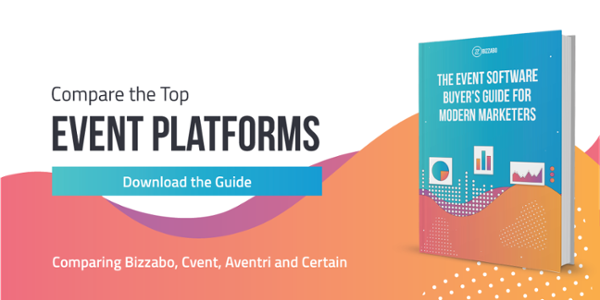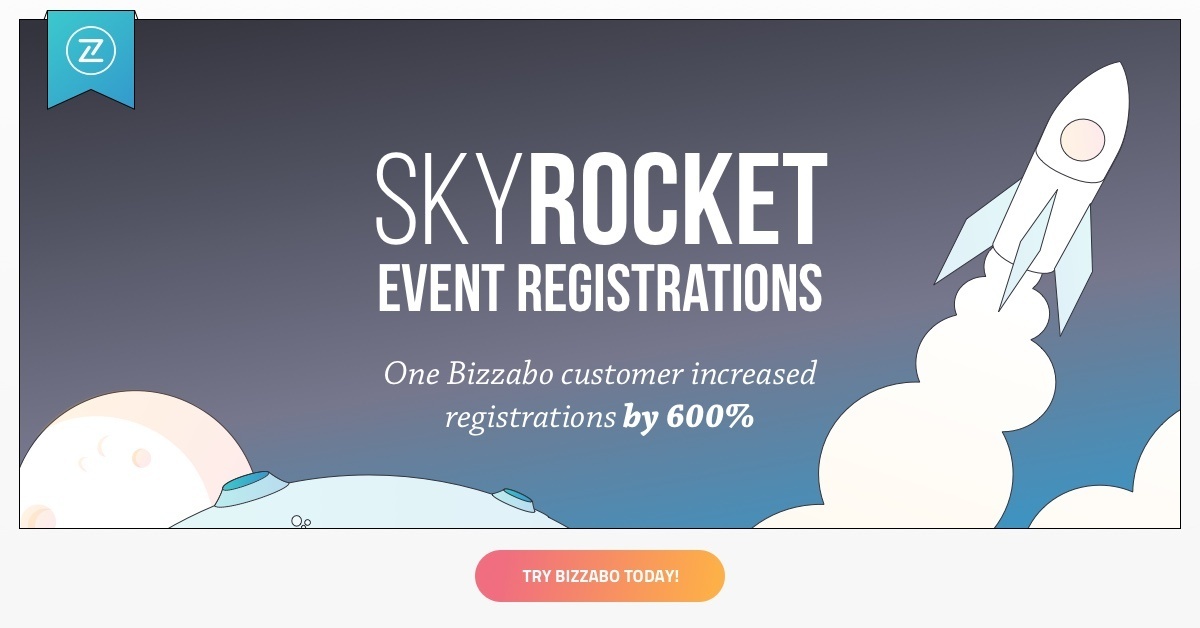Corporate Event Management Best Practices: 2020 Guide


Looking to build a corporate event management plan but not sure where to begin? Check out this article to learn best practices that lead to a strong corporate event management strategy—in 2020 and beyond.
Live events have become a key part of marketing efforts for both B2B and B2C companies. According to the Event Marketing 2019: Benchmarks and Trends Report, events are the single most effective channel for achieving business goals. However, the amount of moving pieces with an event is significantly greater than those in an email marketing campaign or social media campaign.
The key to any successful marketing campaign is to make the process repeatable so that campaign success is always attainable. The process must be converted into a scalable plan that can be reapplied to future marketing initiatives. The same goes with events.
In this guide, we’ll review the following best practices for launching a corporate event strategy:
- Set Overarching Goals
- Manage Your Contacts Database
- Promote Event Awareness
- Drive Online Event Registrations
- Maximize The Attendee Experience
- Prove Event ROI
For more information on the latest trends and best practices in corporate event management, read the Event Marketing 2019: Benchmarks and Trends Report.
Set Overarching Goals
Diving straight into an event strategy without properly defining the goals of the event can lead to poor results. That’s why it’s essential to set aside ample time to articulate the objectives for an event. This process can also give your team the opportunity to come up with other creative corporate event ideas.
Be thorough with this initial goal-setting process so that each successive step falls in line with the bigger picture.
1. Define your audience
Whether you are launching a B2C or B2B event marketing campaign, targeting a large group of individuals as part of a general brand awareness strategy or a small ring of executives as part of a focused multi-touch marketing strategy will determine the ultimate aims of your event.
For example, when initiating an account-based marketing strategy you’ll want to focus on how to engage and build relationships with your target customer and prospect accounts.
2. Make it all measurable
Setting goals that are not measurable will make it difficult to understand the impact of your event. With each main objective, attach a relevant event KPI to keep track of its progress and measure performance over time.
For example, if one goal is increasing the number of paid tickets to your event, you’ll want to track ticket revenue against the overall number of event tickets.
3. Standardize metrics across events
Establishing metrics isn’t always enough. If your event strategy consists of a portfolio of different events, you’ll want to ensure consistent metrics across all event campaigns. This significantly assists with the post-event data analysis because a cohortized view of all event data will yield the most insightful and actionable results.
Check out the available solutions that your event management software offers with regards to cross-event analytics and reporting to see how to gain greater visibility into your metrics.
4. Align goals across teams
Perhaps the most important aspect of the goal setting process is to assure alignment across the marketing and sales teams. Having a shared objective and tethering that KPI to the performance of each team will incentivize both groups to work together.
“One of the reasons I love Yext is that the sales and the marketing team are very much aligned. We know that we need to do everything we can to help the sales team, but they’re also going to help us achieve our goals to make it a great experience for everyone.”
-Lindsay McKenna, Yext
Manage Your Contacts Database
Once the goals have been solidified, the next step is to organize and define the audience you’ll want to target. Having a clean and reliable contact database is important for not only the event at hand but for all future event marketing campaigns.
1. Integrate with your CRM
First, make sure to sync your event software with your customer relationship management platform. This provides a central location for all contact info and makes running your campaigns much easier as you won’t have to hop in and out of platforms to target different audiences. You may also be interested in exploring other event software integrations.
2. Segment audiences
Once all of your contact data is one place, use filtering capabilities to segment the audience based on different properties such as job type or industry. This will help you keep inventory of the number of contacts you have for each category as well as assist you in executing targeted marketing campaigns, which we’ll discuss in the next section.
3. Ensure GDPR and CCPA compliance
All of these contact management best practices should be prefaced with the fact that GDPR will largely influence your handling of this info. Although enacted in the European Union, the General Data Protection Regulation applies to all companies who interact with EU citizens. Similarly, the recently instated California Consumer Privacy Act is relevant to all companies that interact with California state residents. This means that nearly every corporation must be thorough and transparent with their data handling. Event data security should be of the highest priority and outlining how your company is GDPR and CCPA compliant will be important to maintain a trusting relationship with your audience.
“Increasing data and privacy protection will be needed. As a planner, make sure your registration company is PCI compliant and take other steps to guard attendee information captured. Also, be aware of the coming GDPR (General Data Protection Regulation) a sweeping set of privacy regulations that will affect any event with European attendees or members regardless of where the event takes place.”
– Corbin Ball, Founder, Corbin Ball Associates
Looking for insights on the most popular event management tools? Check out Bizzabo’s Event Tech Buyer’s Guide for an in-depth report on the most popular event platforms in 2020.
Promote Event Awareness
Event promotion is how you spread awareness, build anticipation and ultimately drive registrations. Because there are many ways to market your event, using a multi-channel event marketing approach for event promotion will ensure that you are taking advantage of all resources.
1. Website
Given that the event website will be the primary touch point for potential attendees, it should encompass all of the strengths of your event while being packaged neatly into your brand aesthetic. Articulate how your event stands out from the rest and make sure to maintain visual brand consistency throughout. Check out this example of a strong event website by Forbes:
 Source: Forbes
Source: Forbes
The simple, on-brand colors and clear value propositions of Forbes annual 30 under 30 Summit make it memorable for the website visitor. For more inspiration, check out this list of event websites that drive registration.
2. Email marketing
As mentioned in the previous section, segmenting your target audience is crucial for effective campaigns and this especially rings true for email marketing. Segmenting emails based on industry, location, company size or revenue, role, and other contact properties will yield higher open and click-through rates. Each segment should have its own triggered workflow that sends an email after a certain action, such as opening the previous email, visiting a certain page on the event website, or enrolling in a newsletter subscription. Having a series of event emails based on behavior will make the experience much more personalized and relevant for the recipient.
 Source: Coindesk
Source: Coindesk
For example, Coindesk sent the above early bird promotion to a segment of their contacts for their upcoming 2020 Consensus event. The email also included relevant attendee social proof from cryptocurrency investor, Tyler Winklevoss. Check out some of our favorite event email examples in our article 15 Event Invitation Emails Proven to Work.
3. Social media
The key for social media event campaigns is to maintain uniformity. Use the same hashtag and handle across platforms so people know how to refer to your event on social media. Additionally, devise a social media content calendar at least one month in advance to make sure people have posts to engage with, keeping your social media buzz healthy leading up to the event.
 Source: Twitter
Source: Twitter
For example, Salesforce used the hashtag #SalesforceWorldTour on Twitter during their event programming. The hashtag allowed attendees and speakers to join the larger conversation around the event and amplified Salesforce’s event content.
4. Content marketing
Whether it be blog posts, video series, or a combination of both, content marketing is always a great way to spread awareness about your event. Serial content works well because it gives your audience a reason to continually come back to your page for new content. The example below shows a library of content from Gainsight’s 2019 Pulse Conference:
 Source: Gainsight Pulse
Source: Gainsight Pulse
The in-depth video series makes people want to know more about the event while also keeping it top-of-mind as the Pulse 2020 registration deadline gets closer.
Craving more inspiration for your corporate event content? Check out 25 Unforgettable Corporate Event Themes.
Drive Online Event Registration
Event promotion is all about spreading awareness for your event. Moving further down the corporate event marketing funnel, you’ll want to have specific campaigns dedicated to driving registrations to your event. Whether your goal is generating revenue from ticket sales or building relationships with prospects and customers, you need people to register for your event.
1. Early bird tickets
Let potential attendees know that there is only a limited time to purchase discounted tickets. Create campaigns around unique ticket types like early bird pricing and seasonal discounts to create urgency and to spur action on potential registrants’ part. The following example shows how HubSpot’s INBOUND team brilliantly promoted a limited time offering with a timely Cyber Monday deal. (More tips on increasing event ticket sales here.)
 Source: Inbound
Source: Inbound
2. Promo codes
Once a person has registered for your event, generate a promo code they can share on their social media channels. If someone else completes registration with the code, the person who shared the code will receive a discount. You can also make it so that the person who uses the code also receives the discount. These are known as one-sided and double-sided incentives.
This type of referral marketing has the potential to go viral so make sure your corporate event management software has such a feature. Below you can see how the Bizzabo platform facilitates this kind of marketing through a feature called Ticket Boost.
 Source: Bizzabo
Source: Bizzabo
3. Remarketing campaigns
One strategy that complements the aforementioned event promotion strategies is remarketing (otherwise known as retargeting) ads. Remarketing can be done in many ways. One way is to serve ads to those who have visited your page using cookies on your event website. Another type of remarketing is to upload list of email addresses to Facebook Exchange in order to retarget those individuals with ads on Facebook. To learn more about this topic, check out this blog post on retargeting ads for event promotion.
For more registration tips, check out the Event Registration Guide.
Maximize the Attendee Experience
Once the event is underway, the focus should now be on maximizing the attendee experience, from check-in to the final sessions. Whether your corporate event is internal or external, optimizing the attendee experience is a key aspect to overall event success.
1. Seamless Check-in Process
From the moment they walk into the venue, attendees should feel delighted with their experience. Consider using an advanced on-site event check-in solution like Bizzabo’s Onsite Solution to offer services such as self check-in kiosks, QR code scanning, and on-site badge printing. Ideally your event management software will integrate with your check-in solution to ensure one-to-one validation between registration info and check-in credentials.
 Source: Bizzabo
Source: Bizzabo
For example, Coinbase used Bizzabo’s Onsite Check-in Solution for their 2019 Consensus event to offer a seamless day-off registration and badge printing for event attendees.
2. Event App
For the duration of your corporate event, attendees will be referring to the event app for a multitude of reasons. Make sure to have an event app that easily integrates with your corporate event software so you can swiftly pull engagement analytics after the event. The following two points will also be dependent upon the capabilities of your event app.
 Source: Bizzabo
Source: Bizzabo
For example, Bizzabo offers a white label event app solution that allows event marketers to create a fully branded event app. This provides a multitude of ways attendees can interact with event content, attendees, sponsors, and more.
3. Live Polling
A great way to keep your attendees engaged is to ask questions through the app during a particular session of workshop. Receiving real-time feedback will help you make changes to not only future events but the one that is currently being held.
4. Community Messaging
Perhaps the most impactful feature of the event app is the ability to facilitate relationship-building between attendees through the native messaging platform. The key here is to build a community well before the event start date. If attendees begin getting to know each other months before the event, the event itself will be that much more rewarding for everyone.
“How do we create experiences for attendees that allow them to meet others in their similar line of work or folks that are not in their line of work? Every decision we make through programming, attendee engagement, event flow flow, or how we’re moving people through a given convention center or hotel is very thoughtfully planned to make sure that we are a step ahead of any anticipation from our attendees.”
– Karen Merritt, LinkedIn
To learn more about event engagement, check out the Mobile Event Apps Guide.
Prove Event ROI
Now that the event has come to a close, it is important to accurately measure and prove the ROI of the event. Properly analyzing the numbers as well as communicating them effectively to the right people is a key best practice to corporate event planning. The campaign should not be considered complete until a thorough post-event analysis and debrief is conducted.
1. Focus on the key metrics
What were the KPIs that were discussed prior to the event? Revisit your original event objectives and create a report that keeps consistent with the initial goals. This will make for a more coherent and digestible ROI report for your relevant stakeholders, whether that be event sponsors, managers, or the executive board.
2. Connect event KPIs with overall business metrics
The event ROI should not be self referential. Articulate how the event performance impacts bottom line business metrics. Instead of saying that 300 new contacts were acquired from the event, show that 100 of the 300 new contacts have already been connected with the sales team and that the sales pipeline has increased by 60%. Connecting your event metrics to the larger company objectives will make it easier to prove the event’s impact.
3. Schedule a follow-up report
Often times the impact of an event can only be fully understood after a few months have passed. Whether the goal was brand awareness, customer acquisition, or increasing sales pipeline, most event metrics require time to mature. Set a reminder on your calendar to send a follow-up report to relevant stakeholders informing them of how the event has continued to influence the overall business metrics. This shows initiative on your part and helps prove the point that corporate event marketing is a long-term strategy.
“Events touch almost every single opportunity that progresses and ultimately closes. So it’s a great place to be and it’s a great way to lean in and to provide business results. That’s why I love it so much.”
– Colleen Bisconti, IBM
Key Takeaways: Your Corporate Event Management Strategy
Corporate event management consists of many moving parts, but half the battle is knowing what to focus on. Fortunately, there are many established best practices and tools to help you get the best results in 2020 and beyond. To recap the aforementioned points, here are a few takeaways:
- Compartmentalize your corporate event strategy into actionable tasks and make sure they align with the overall event vision.
- Integrate your corporate event management software with other marketing and CRM platforms to better organize, execute, and manage your event.
- Attach measurable KPIs to each objective of your event to more effectively prove ROI after the event.
- Engage attendees well before the event start date to build up momentum for the event
- Execute a multi-channel approach to event promotion and keep the messaging consistent.
- Measure the findings of each event individually and across event campaigns.
Use these best practices to build the framework for your corporate event strategy and distill your process into a repeatable procedure that results in event success.
Based on this article, you might also appreciate learning about:
If you’re interesting in learning about an award-winning event software that just might be able to help you, click the button below.
Editor’s Note: This post was originally published on June 15, 2018 and has since been updated.









